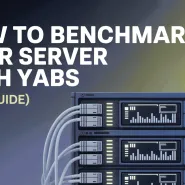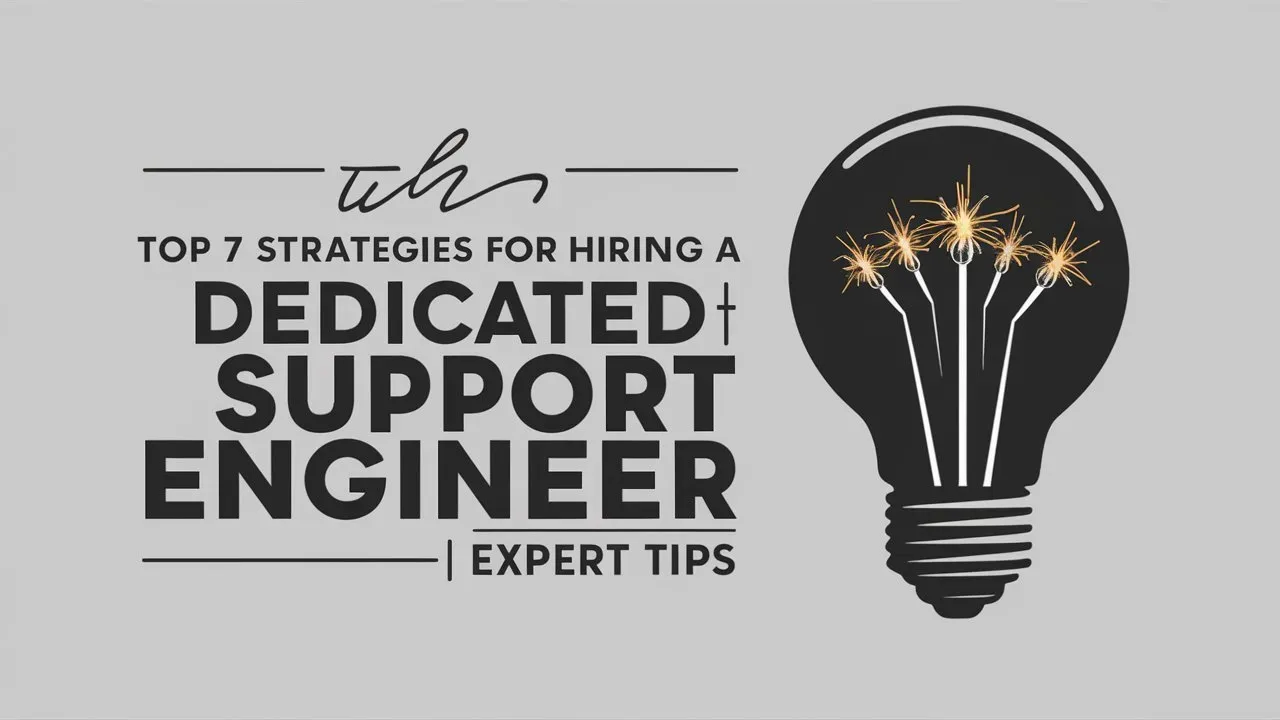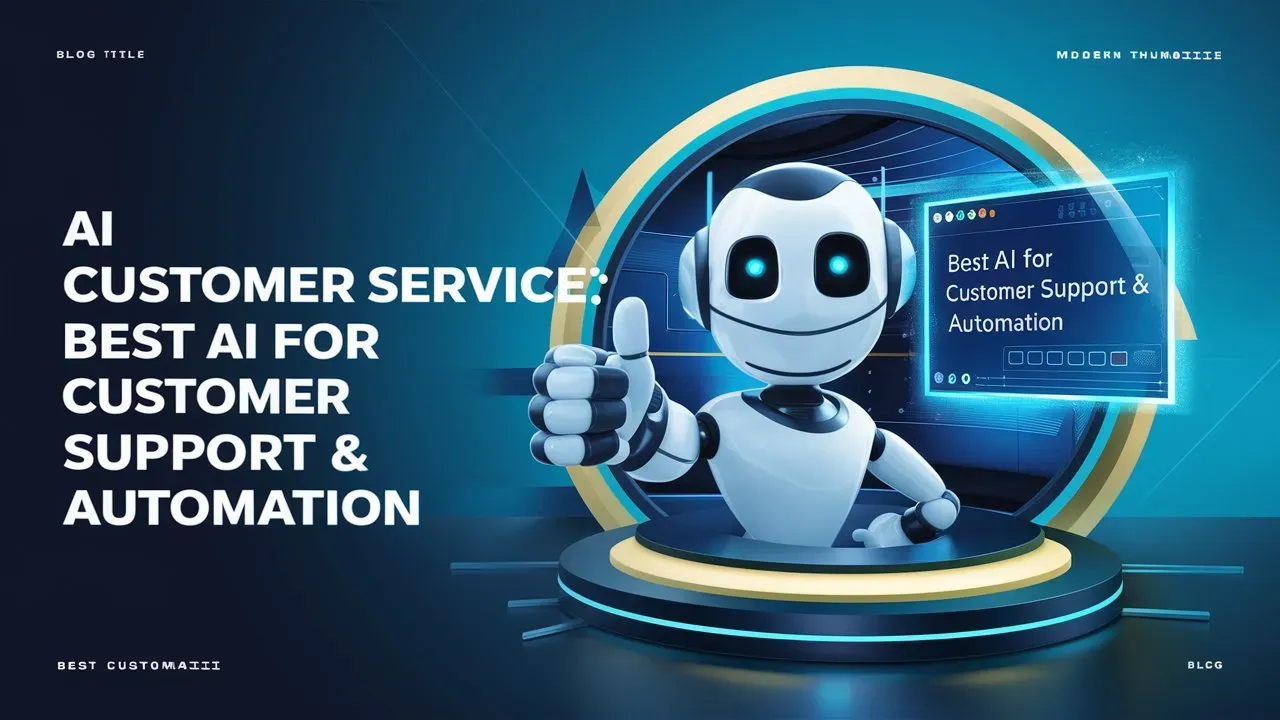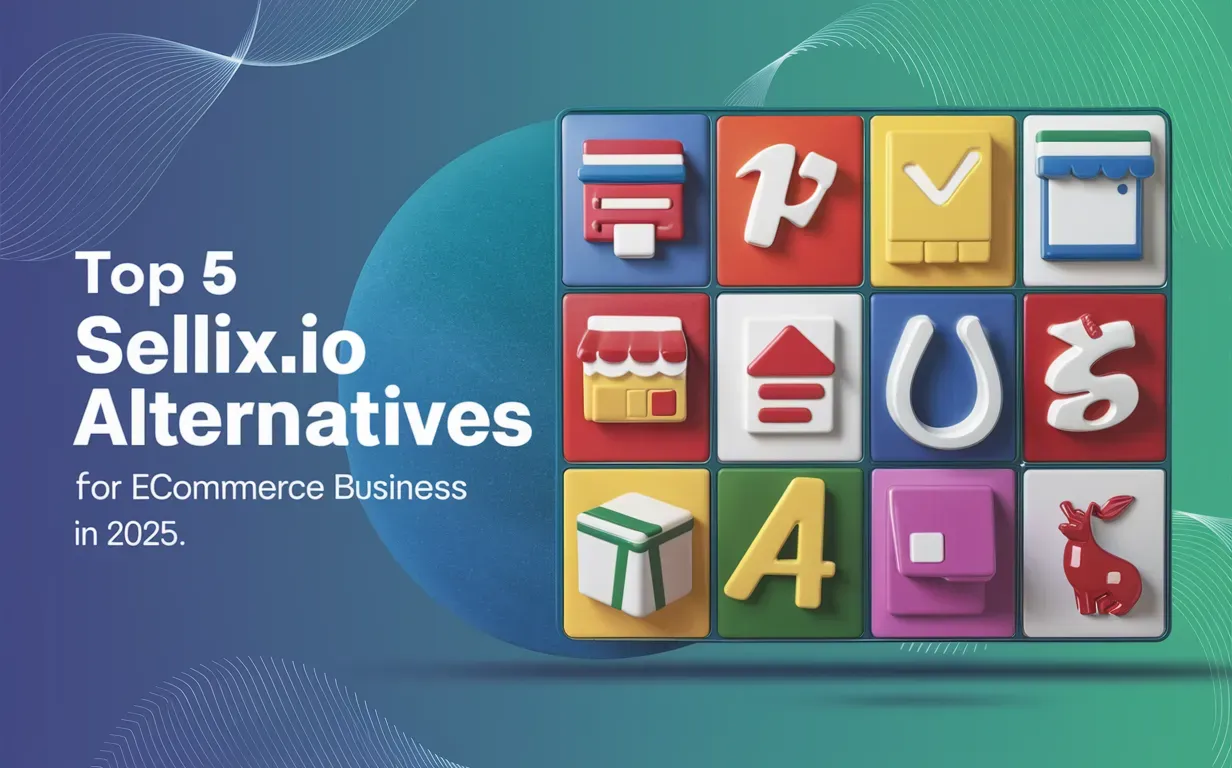the need for a good Dedicated Support Engineer is higher than ever. Companies depend on these experts to keep things running smoothly, fix tough problems, and keep customers happy. A Dedicated Support Engineer isn’t just someone who solves problems—they’re a key part of a company’s support team, connecting the business with its clients. But finding the right Technical Support Engineer can be tricky, especially with so many candidates out there.
To make the process easier, Owrbit has put together a list of seven strategies for Support Engineer Hiring. These tips will help you hire the best Technical Support Engineer for your team. From setting clear job expectations to evaluating both technical skills and how well someone works with others, our guide will help you make smart hiring choices.
Whether you’re a startup building a support team or a bigger company fine-tuning your support operations, these insights will give you the tools you need to find and hire the perfect Dedicated Support Engineer. Keep reading to learn how to improve your hiring process and get the best technical support for your company.

Introduction: Importance of Dedicated Support Engineer
A Dedicated Support Engineer is vital to the success and smooth functioning of any company, especially in today’s fast-paced and technology-driven world. These professionals are at the heart of a company’s technical support framework, providing the expertise needed to keep systems running efficiently and addressing any issues that may arise. They are responsible for troubleshooting complex technical problems, ensuring that both internal teams and customers experience minimal disruptions. A skilled Dedicated Support Engineer is not only a problem-solver but also a key player in maintaining the company’s reputation and customer satisfaction.
In addition to technical expertise, a Dedicated Support Engineer serves as the critical link between the company and its clients. They communicate effectively, understand the unique needs of customers, and ensure that solutions are tailored to meet those needs. Their role goes beyond just fixing problems—they also help enhance the overall user experience by providing proactive support, anticipating potential issues, and offering long-term solutions.

Without a Dedicated Support Engineer, businesses can face prolonged downtimes, frustrated customers, and lost opportunities. Their ability to quickly resolve issues and provide continuous support can make or break a company’s success, particularly in industries where technology is central to operations. Therefore, hiring the right Technical Support Engineer is not just important—it’s essential for any company looking to stay competitive and ensure a seamless experience for both their team and their clients.
Strategy 1: Define Your Requirements Clearly
The first step in Support Engineer Hiring is to be clear about what you need in a Dedicated Support Engineer. Start by figuring out the key skills and experience the person should have. Think about the technical skills, like knowing certain software or systems, and the soft skills, like being a good communicator and problem-solver. Knowing exactly what you’re looking for will help you attract the right candidates for the job.
Once you’ve got a good idea of what you need, create a detailed job description. This should clearly explain what the role involves, the skills required, and the experience needed. A good job description helps candidates understand what’s expected of them and what the job will be like day-to-day.

Here are some points to help you define your requirements:
- Identify Key Skills and Experience: Think about the technical skills needed, like knowing how to troubleshoot or using specific tools, and the personal skills like communication and problem-solving that are essential for a Dedicated Support Engineer.
- Write a Clear Job Description: Be specific about the tasks and responsibilities, what skills are needed, and any experience that would make someone a good fit. A detailed description will attract the right Technical Support Engineer candidates.
- Set Expectations: Make sure to outline what the job will involve on a daily basis, so candidates know exactly what to expect. This will help in Support Engineer Hiring by ensuring you find someone who’s ready for the role.
By clearly defining your needs, you’ll make the Support Engineer Hiring process smoother and increase your chances of finding the perfect Dedicated Support Engineer who fits your company’s needs.
Strategy 2: Utilizing the Right Hiring Platforms
When it comes to Support Engineer Hiring, choosing the right platforms to post your job listing is key to finding the best Dedicated Support Engineer. There are many job boards and websites out there, but not all of them are suited for finding the right Technical Support Engineer. To get the best candidates, you need to know where to look.

Here are some key points to consider when utilizing the right hiring platforms:
- Best Job Boards and Platforms for Hiring Support Engineers: Popular job boards like LinkedIn, Indeed, and Glassdoor are great for reaching a wide audience. These platforms have large user bases, which can help you attract a lot of candidates. However, there are also specialized job boards for tech roles, like Stack Overflow Jobs or AngelList, which are often more focused on tech talent and can help you find a Dedicated Support Engineer with the specific skills you’re looking for.
- Niche Sites vs. General Job Boards: While general job boards are great for reaching a wide range of candidates, niche sites can be more effective when you’re looking for a Technical Support Engineer with specific technical expertise. Niche sites attract professionals with specialized skills, making it easier to find candidates who are a better fit for your company’s needs. By posting on both types of platforms, you increase your chances of finding the right person for the job.
Using the right platforms for Support Engineer Hiring will help you connect with the best candidates for your Dedicated Support Engineer role. By targeting both general and niche job boards, you can ensure you’re reaching the right people with the right skills.
Strategy 3: Assess Technical Skills Effectively
When it comes to Support Engineer Hiring, assessing the technical skills of candidates is crucial to finding the right Dedicated Support Engineer. A Technical Support Engineer needs to have the right technical expertise to troubleshoot issues and solve problems quickly. To ensure you hire someone with the right skills, you need to evaluate their technical proficiency effectively.

Here are some key points to help you assess technical skills:
- Techniques for Evaluating Technical Proficiency: One way to assess a candidate’s technical skills is by asking them to walk you through past experiences where they solved complex technical problems. You can also ask them to explain how they would approach specific issues that are relevant to your company’s needs. Another effective method is to conduct a technical interview, where you ask candidates to solve problems in real-time, allowing you to see how they think and approach technical challenges.
- Importance of Practical Tests or Scenarios: It’s essential to include practical tests or scenarios in the hiring process. These tests can simulate real-world problems that the Dedicated Support Engineer will face on the job. By seeing how candidates handle these scenarios, you can assess their problem-solving abilities and technical expertise. This hands-on approach gives you a clearer picture of how they will perform in the actual role, ensuring they have the skills necessary for the job.
By assessing technical skills effectively, you can ensure that the candidate you choose for your Support Engineer Hiring process is a capable and skilled Technical Support Engineer who can handle the challenges of the job.
Strategy 4: Evaluate Soft Skills and Cultural Fit
While technical expertise is important for a Dedicated Support Engineer, soft skills and cultural fit are equally crucial. A Technical Support Engineer needs to communicate well, work effectively with others, and fit into your company’s culture. These qualities can make a big difference in how well they perform and how smoothly your support operations run.

Here are some key points to help you evaluate soft skills and cultural fit:
- Identifying Key Soft Skills to Look For: Some essential soft skills for a Dedicated Support Engineer include strong communication, patience, problem-solving, and empathy. They need to be able to explain complex technical issues in simple terms to customers and team members. They should also be able to stay calm under pressure and handle customer frustrations with professionalism. Look for candidates who show they can collaborate well with others and adapt to different situations.
- Importance of Cultural Alignment in Hiring: Cultural fit is crucial because it ensures that the candidate will work well within your company’s environment. A Dedicated Support Engineer should share your company’s values and work ethic, making it easier for them to integrate into the team. Candidates who align with your company culture are more likely to stay long-term, contribute positively, and work well with other departments.
By evaluating both soft skills and cultural fit, you’ll be able to hire a Technical Support Engineer who not only has the right technical abilities but also meshes well with your team and company values. This will help you build a stronger, more effective support team.
Strategy 5: Conduct Through Interviews
A well-conducted interview is key to finding the right Dedicated Support Engineer. It’s not just about assessing technical skills but also understanding how a candidate fits into your team and company culture. By asking the right questions and involving the right people in the interview process, you can ensure you’re making an informed decision.

Here are some key points to consider when conducting thorough interviews:
- Types of Interview Questions to Ask: When interviewing a Technical Support Engineer, ask a mix of technical and behavioral questions. For example, you could ask about specific technical challenges they’ve faced and how they solved them, or inquire about their experience with certain tools or software. It’s also important to ask about how they handle customer interactions, their approach to problem-solving, and how they prioritize tasks under pressure. Behavioral questions like “Tell me about a time you had to handle a difficult customer” can give you insight into their soft skills and how they might handle real-world situations.
- Involving Team Members in the Interview Process: Involving team members in the interview process can provide a broader perspective on how the candidate will fit into the team. Different team members, especially those who will work directly with the Dedicated Support Engineer, can assess the candidate’s technical abilities and soft skills from different angles. This collaborative approach ensures that you’re making a well-rounded decision and that the candidate will be a good fit both technically and culturally.
By conducting thorough interviews and involving the right people, you can ensure that your Support Engineer Hiring process is more effective and that you find the best Technical Support Engineer for your team.
Strategy 6: Offer Competitive Compensation and Benefits
To attract the best Dedicated Support Engineer, it’s essential to offer competitive compensation and benefits. Top talent is in high demand, and offering a fair salary along with appealing benefits can help you stand out in a crowded job market. Understanding what support engineers expect in terms of compensation will ensure you remain competitive and attract the right candidates.

Here are some key points to consider when offering compensation and benefits:
- Understanding Market Rates for Support Engineers: Before you set a salary, research the market rates for Technical Support Engineers in your region and industry. Salaries can vary based on factors like location, experience, and the complexity of the role. Use salary comparison tools, such as Glassdoor or Payscale, to get a better idea of what similar companies are offering. This will help you offer a salary that’s both competitive and fair, ensuring you don’t lose out on top talent due to underpaying.
- Additional Benefits That Attract Top Talent: Beyond salary, offering attractive benefits can make a big difference in attracting a Dedicated Support Engineer. Benefits like flexible working hours, remote work options, health insurance, paid time off, and professional development opportunities are highly valued by many candidates. You can also consider offering performance bonuses, retirement plans, or wellness programs to further sweeten the deal. These additional perks can help you stand out and appeal to high-quality candidates who are looking for more than just a paycheck.
By offering competitive compensation and benefits, you’ll be in a better position to attract top-tier Technical Support Engineers who are motivated and ready to contribute to your company’s success.
Strategy 7: Onboarding and Continuous Support
Once you’ve hired the right Dedicated Support Engineer, it’s crucial to ensure they have a smooth transition into their role. A well-structured onboarding process and ongoing support will help them succeed and grow within your company. This not only helps them feel welcomed and prepared but also ensures they perform at their best from day one.

Here are some key points to consider when focusing on onboarding and continuous support:
- Importance of a Structured Onboarding Process: A structured onboarding process is essential to help your new Technical Support Engineer get up to speed quickly. It should include an introduction to the company culture, team members, and key tools or systems they’ll be using. Provide them with clear expectations, role-specific training, and access to resources they can refer to as they learn the ropes. A solid onboarding experience helps your new hire feel confident and ready to tackle their responsibilities, leading to higher job satisfaction and better performance.
- Providing Ongoing Training and Development Opportunities: To ensure long-term success, it’s important to offer continuous training and development opportunities for your Dedicated Support Engineer. Technology is always changing, and providing regular training will help them stay updated on the latest tools, systems, and best practices. Offering opportunities for professional growth, such as certifications or attending industry conferences, can also motivate your Technical Support Engineer to keep learning and improving their skills. This investment in their development not only benefits them but also helps your company stay ahead in a competitive market.
By focusing on a structured onboarding process and providing ongoing support, you’ll help your new hire succeed and grow in their role, ultimately leading to better performance and long-term retention.
Conclusion: Making the Right Hire for Long-Term Success
Hiring the right Dedicated Support Engineer is key to your company’s long-term success. By following these strategies, you’ll be able to find a candidate who has the right skills and fits well with your team and company culture.
Here’s a quick recap of the strategies that will help you with Support Engineer Hiring:
- Define Your Requirements Clearly: Make sure you know exactly what skills and experience you need in a Dedicated Support Engineer. Write a clear job description to attract the right candidates.
- Utilize the Right Hiring Platforms: Post your job on both general and niche job boards to reach the best candidates for your Technical Support Engineer role.
- Assess Technical Skills Effectively: Use technical interviews and practical tests to evaluate the skills of your Dedicated Support Engineer candidates. This will help you see how they handle real-world problems.
- Evaluate Soft Skills and Cultural Fit: Look for candidates who have strong communication skills and a good cultural fit for your company. This is important for creating a smooth working environment.
- Conduct Thorough Interviews: Ask the right mix of technical and behavioral questions. Involve your team members in the interview process to get a better idea of how the candidate will fit in.
- Offer Competitive Compensation and Benefits: Make sure your salary and benefits are competitive with the market to attract top talent for your Technical Support Engineer role.
- Onboarding and Continuous Support: Provide a clear onboarding process and offer ongoing training to help your Dedicated Support Engineer succeed and grow in their role.
By following these strategies, you’ll make the Support Engineer Hiring process easier and find the right Technical Support Engineer who can contribute to your company’s success for the long term.
Checkout AI Customer Service: Best AI for Customer Support & Automation 2025
Discover more from Owrbit
Subscribe to get the latest posts sent to your email.











